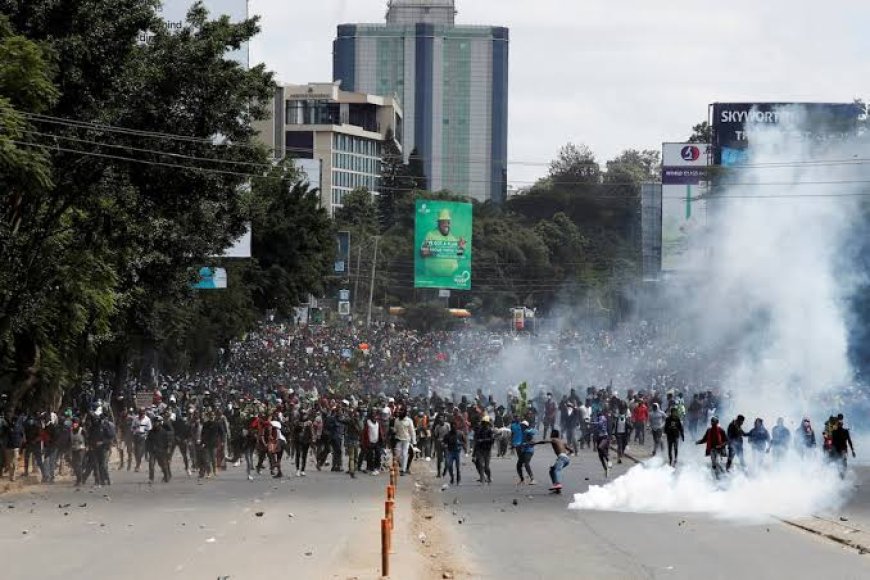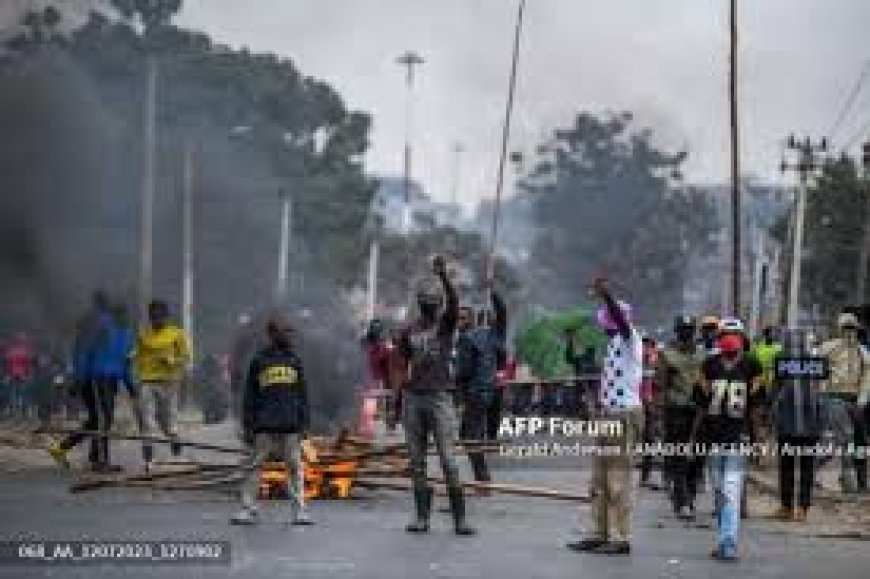Why power belongs to the people
By Calvin Obat
Will the citizens ever get power?
In a world where power tilts towards a few, it is important that the phrase "power belongs to the people" be inculcated in our heads as a stark reminder of what mass and people's movements are.
Traditionally, the belief that power resides in the people took more definite shape during the enlightenment. Theorists such as John Locke and Jean-Jacques Rousseau argued that governments should exist by the consent of the governed through some form of social contract.
The ideological shift that this change provided revolutions, from the American Revolution (1775-1783) to the French Revolution (1789-1799). In these movements, it is the unified voice of the people that became a strong force against monarchies and repressive regimes.
The rhetoric of "liberty, equality, and fraternity" in France inspired countless uprisings worldwide and showed the power inherent in organized, collective dissent.
The Civil Rights Movement
Fast forward to the 20 th century, the Civil Rights Movement in the United States serves as a powerful example of how people can come together to bring about real change. Leaders like Martin Luther King Jr. mobilized citizens to stand up against systemic racism and fight for equal rights.
The 1963 March in Washington, during which King gave his famous "I Have a Dream" speech, was the epitome of grassroots activism that had been building over the years. This event clearly showed that peaceful demonstrations had the power to question and alter the status quo.
Global South and Decolonization
The quest for power was reflected in the Global South during the decolonization process when nationalist movements, at the middle of the 20th century, displayed self-determination. Countries such as India led by Mahatma Gandhi developed non-violence as a mode of resistance against colonial powers who were forced to withdraw.
Talking about mechanisms down the line, how power belongs to the people, there arises the necessity to mention issues related to voting. Electoral participation forms the heart of democracies since it helps project the will of the people. However, impediments such as gerrymandering, voter suppression, and misinformation-can distort this power.
Grassroots movements are essential in empowering individuals and communities. These movements, made up of ordinary citizens wanting change, have become powerful channels in the digital age. Social media has allowed for the rapid mobilization of protests and campaigns, from the Arab Spring to Black Lives Matter.
Black Lives Matter
The Black Lives Matter (BLM) movement illustrates how grassroots organisations can galvanize public sentiment against systemic injustices, such as police brutality and racial discrimination. The 2020 protests in the US, catalyzed by the killing of George Floyd, demonstrated some degree of popular mobilization and demand for systemic change.
Through protests, art, social media, and community organizing, BLM has mobilized an international movement illustrating that, in fact, people can challenge and, indeed, change some of the most entrenched power structures.
Economic Empowerment
Economic empowerment is intertwined with political power. People and communities try to claim their rights, economic inequality tends to act as an obstacle to attaining significant change. The importance of inclusive economic policies that ensure equity in resource distribution cannot be emphasized enough.
Cooperative Movements
A possible way through which economic empowerment can be realized is through cooperative movements. These are structures where individuals come together to achieve a mutual economic need. Examples are worker cooperatives that challenge the conventional by putting the control into the hands of workers rather than corporate executives.
In controlling their laboUr and their profits, workers start to wield power and succeed based on community welfare, not shareholder profits.
Success Stories from cooperative movements
Mondragon Corporation in Spain is a successful worker cooperative that has thrived for decades, providing jobs and social welfare and economic stability to its members. Here, the ethos of "power belongs to the people" rings true, as workers are stakeholders, making decisions that ultimately impact their livelihoods and communities.
In today's interconnected world, the landscape of activism has dramatically shifted. The the internet, social media, and mobile technology have afforded unparalleled opportunities for organizing and advocacy. Movements can now transcend borders, with activists around the world sharing strategies and resources.
But such a shift in power is not without its pitfalls, either. Disinformation campaigns and state surveillance also utilize the same mediums fraught with dangerousness to people's power.
Social media as an empowerment tool
X, formerly Twitter, Facebook and Instagram have been among the critical ways of mobilizing support, telling stories, and raising awareness. The #MeToo Movement, answering sexual harassment and assault, took to social media to spark international conversations on consent, power dynamics, and survivors' struggles.
The role of education
Through education, the process of people taking back their power may become important. Critical consciousness, termed by educator Paulo Freire, means awareness of social, political, and economic contradictions, with subsequent actions against such oppression.
Educational initiatives which encourage critical thinking and civic participation may therefore generate knowledgeable citizens prepared to take their power back.
Intersectionality of Power
The struggle for power is not homogenous; rather, it crosses over with race, gender, sexuality, and class. Recognizing these intersections is important in understanding the multifaceted nature of empowerment. For example, feminist movements have demonstrated how power relations operate differently across gender, necessitating an intersectional approach to activism that also accounts for unique struggles.
Intersectional feminism considers that different social identities overlap and affect how people experience oppression and privilege. Leaders such as Kimberlé Crenshaw have stressed that movements must be inclusive, that women are experiencing different problems that need to be addressed if people are truly to be equal.
This intersectional frame highlights the multifaceted ways in which power can be claimed and wielded.
Shared responsibility
As we consider the range of ways in which power can be claimed and the historical context of people's movements, it becomes increasingly clear that the responsibility to uphold democracy and advocate for fairness lies with each individual.
Global challenges like climate change, economic inequality, and systemic injustice require collective action; no one entity can navigate these crises alone.
While grassroots movements are powerful, the role of institutions—governments, schools, non-profits—remains critical in creating an environment where the voice of the people is heard and acted upon.
Institutional responsibility to be guardians and advocates for human rights; promotion of inclusivist policies and the uplifting of the excluded must be demanded now. If this empowerment is to keep democracy alive, people must develop critical thinking, listening to various points of view, and knowledge about issues.
Reclaiming Power
People's power is not just a slogan, but an appeal that invokes from the people themselves the spirit to create change, promote cohesion and resistance. From social movements to current fights, voices collectively raised have given shape to our societies.
As one looks backward, engages the present, and builds the future, there remains one relevant thing - the power to effect change lies within each and every one of us. Empowerment begins with recognizing our shared humanity, acknowledging systemic injustices, and being resolutely committed to shaping a better world.
Standing on the shoulders of giants who came before us, let us remember this is still a fight for power, justice, and equality. It is now time to rise together as one. And together, we'll be able to say once more that power is of the people.
What's Your Reaction?




































































































































































































































































































